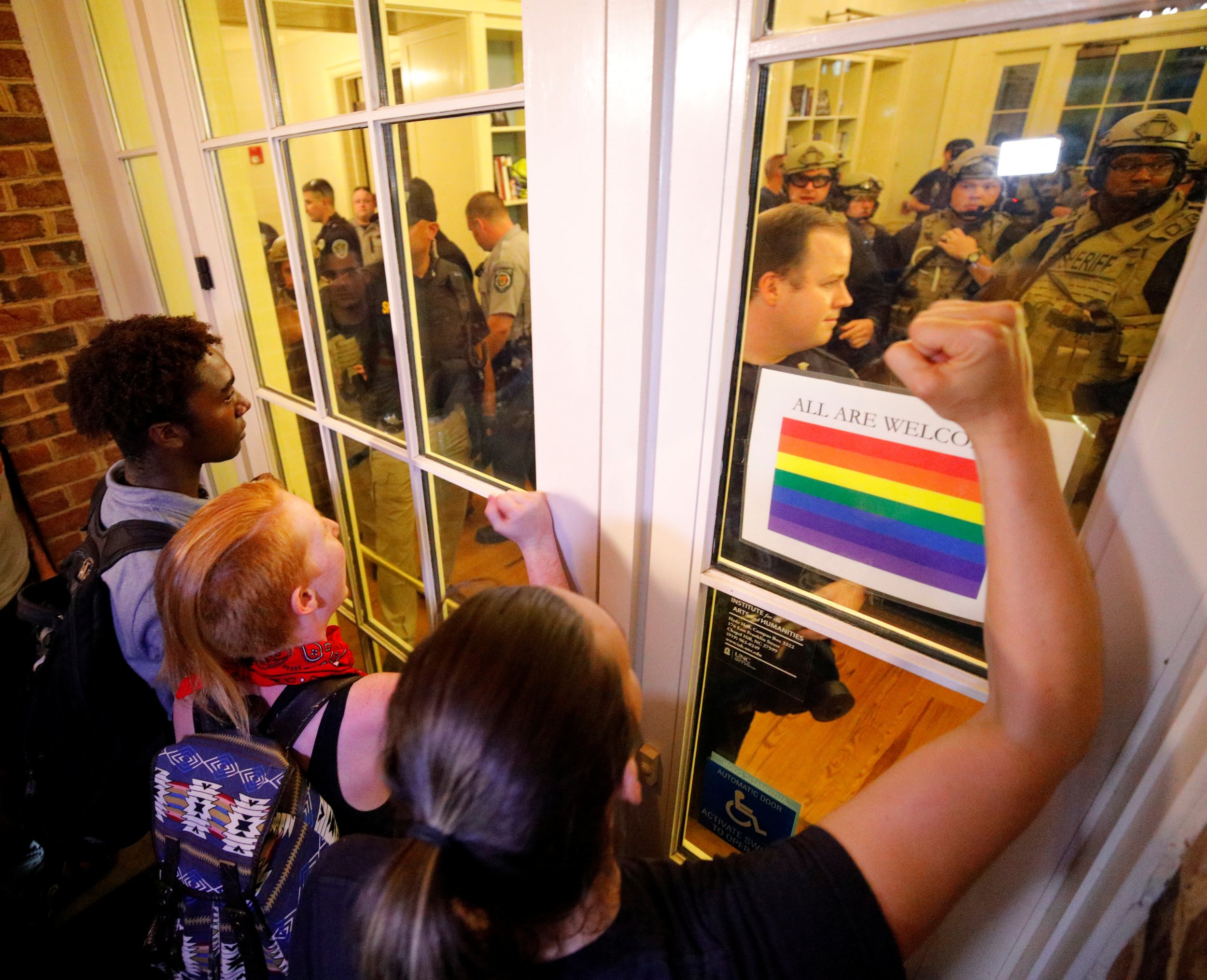
Student Republicans support the use of violence to disrupt a controversial speaker on campus in roughly the same proportion as student Democrats, according to a survey that warns freedom of expression is "deeply imperiled" on U.S. campuses.
In the Brookings study, which collected views from 1,500 students at U.S. colleges in August, researchers presented survey respondents with a hypothetical: A university had invited a "very controversial" speaker "known for making offensive and hurtful statements."
In that light, it asked, "A student group opposed to the speaker uses violence to prevent the speaker from speaking. Do you agree or disagree that the student group's actions are acceptable?"
Of Republican respondents, 22 percent said they agreed, while 78 percent said they disagreed. Among Democrats, meanwhile, 20 percent said they agreed, while 80 percent disagreed.
The finding confounds the stereotype, fueled by several high-profile recent left-wing protests against speakers like the ex-Breitbart writer Milo Yiannopoulos, that left-wing students are more likely to back violent dissent as a legitimate means of blocking speakers from appearing.
There was a greater gap, however, in responses to another question. "A student group opposed to the speaker disrupts the speech by loudly and repeatedly shouting so that the audience cannot hear the speaker," participants were asked "Do you agree or disagree that the student group's actions are acceptable?"
In this case, 62 percent of Democrat students agreed, while only 39 percent of Republicans did.
The survey also found that students' understanding of constitutional protections for free speech was limited. Minorities among both Democrats and Republicans said that the First Amendment protects "hate speech" the bulk of both said they either did not know, or that it did not.
The correct answer is that hate speech is protected under the First Amendment, although there are exceptions when the speech incites violence or constitutes a true threat to a person, which may have confused some respondents.
Sizable majorities of both Democrats and Republicans (65 and 62 percent respectively) also agreed with the claim that the host of an event featuring the offensive speaker is legally required to also present a counterpoint to the speaker's views under the First Amendment. No such requirement exists under the amendment.
"I think that college faculty and administrators have a heightened responsibility to do a better job at fostering freedom of expression on their campuses," the survey's author John Villasenor wrote. "I would hope that results such as these can help spur faculty members and university administrators to think about the importance of creating a campus environment in which students are exposed to a broad range of views, including some that students may find disagreeable."
Uncommon Knowledge
Newsweek is committed to challenging conventional wisdom and finding connections in the search for common ground.
Newsweek is committed to challenging conventional wisdom and finding connections in the search for common ground.
About the writer
Josh is a staff writer covering Europe, including politics, policy, immigration and more.
To read how Newsweek uses AI as a newsroom tool, Click here.








